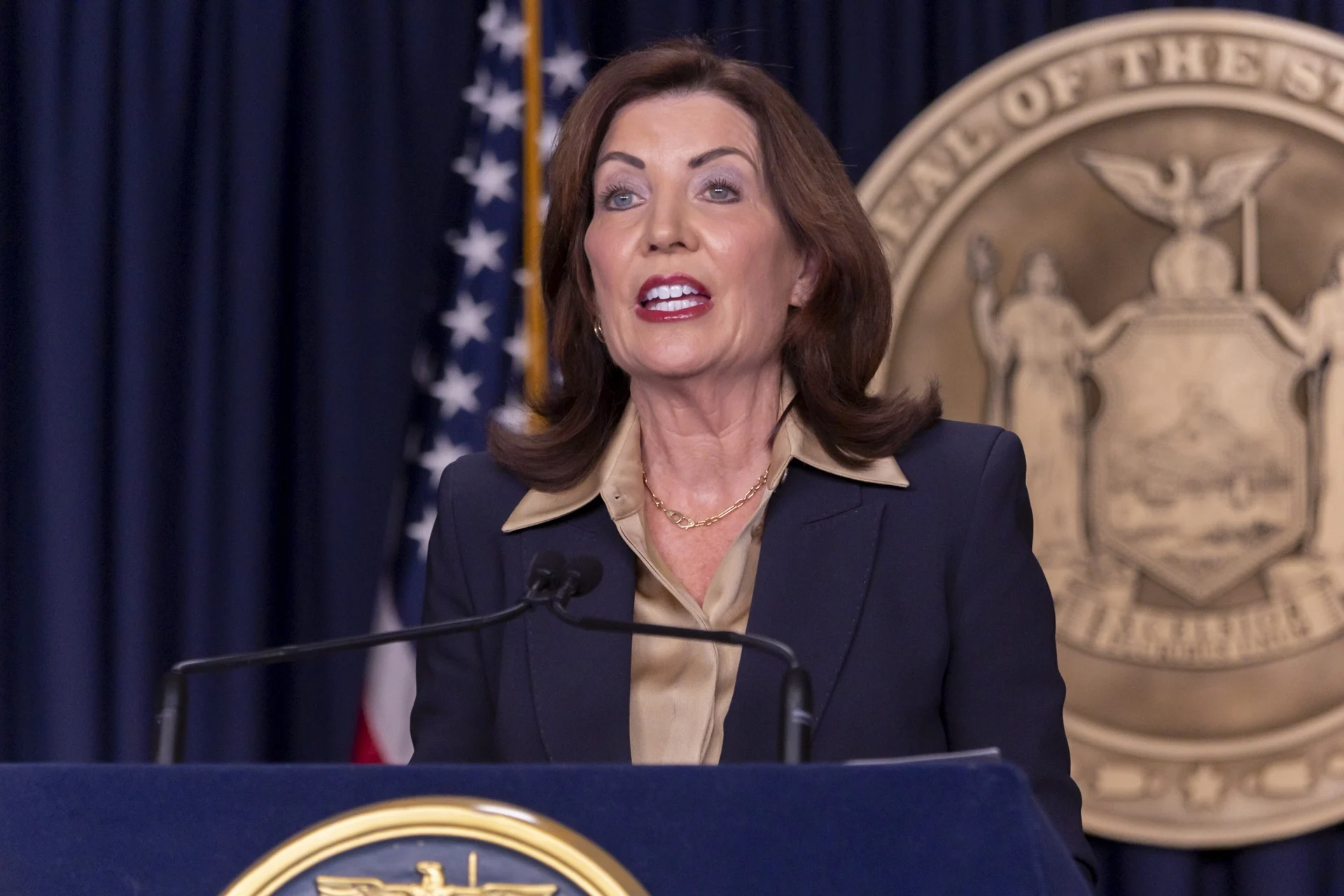International
The president of the Dominican Republic, Luis Abinader, will assume his second term determined to reform the Constitution

The president of the Dominican Republic, Luis Abinader, will assume his second and last term of government next Friday after achieving re-election last May, and he will do so with a view to a constitutional reform, criticized by many, and a fiscal reform, which has been postponed for years.
Just hours before the results of the May elections were known, Abinader, of the Modern Revolutionary Party (PRM, liberal and progressive), announced his intention to change the Constitution, which would be the fourth reform of this century, and everything indicates that he will do so.
Trusting that this “is the last” reform, Abinader, a 57-year-old economist, should not have major inconveniences in bringing this proposal of changes in the Magna Carta to fruition, if it is taken into account that the PRM will mostly control the National Congress from Friday, after rising in the elections with 29 of the 32 senators and 146 of the 190 deputies.
The initiative, which will be presented to Congress coinciding with the investiture, has among its main objectives to prevent changes to the rules of the presidential election (limited to two consecutive terms), consolidate the independence of the Public Ministry (Public Prosecutor’s Office), reduce the number of deputies and unify the holding of elections, according to the proposal presented by Abinader a few days ago to the press.
It is not, he said then, “a conjunctural reform driven by partisan political needs or individual aspirations,” but it is “thought for the benefit of the community” and to consolidate the principles of democracy, transparency and institutionality, as “a shielding of democracy.”
But, at the same time that the Government and the PRM defend the eventual reform, there is also a growing criticism from the opposition, which considers a change of the Magna Carta to be inopportune.
Among the critics is former president Leonel Fernández, who faced Abinader in the elections and who considers that the best way to protect the Constitution is not to touch it, although he already did it in 2010.
In return, the three-time president of the Dominican Republic, whose party, the People’s Force, is the second formation in the National Congress, proposes that the referendum law be approved, which is contemplated in the 2010 Constitution, but still without legislation in this regard.
The questions have also been joined by prosecutors, who fear that, through the reform, the Superior Council of the Public Ministry will be eliminated, which Abinader denies.
Along with the constitutional change, Abinader also has a tax reform in the sights.
Dominican Republic – with an average annual growth rate of approximately 5% for decades and which, as reported on Tuesday by the Economic Commission for Latin America and the Caribbean (ECLAC), will lead the growth of the region with 5.2% in 2024 – has had a fiscal reform pending for years, a promise already of Abinader’s campaign for the 2020 elections.
In fact, just two months after assuming power for the first time and in the midst of the COVID-19 pandemic, Abinader presented a plan with new taxes to face the crisis, but ended up withdrawing it due to criticism.
Representatives of the public sector, the private sector and even international organizations understand that the reform is urgent.
According to a recent report by the International Monetary Fund (IMF), fiscal reform can help the Dominican Republic attract more investment.
However, “beyond the much-needed increase in tax revenues,” the comprehensive tax reform “should include the adoption of a tax rule that establishes limits on long-term public debt, which would increase certainty and help safeguard fiscal sustainability,” says the IMF.
Another “critically important” reform, according to the IMF, is to address the failures of the electricity sector, which come from far away and have generated significant losses, which average between 1% and 2% of annual GDP in the last decade.
Apart from these issues, Abinader will also have to face long-standing social debts in the next four years, along with the deficient health system, labor informality or insecurity.
And at the same time it will have to face the increasingly chaotic traffic, which every year causes between 3,000 and 4,000 deaths, making the country one of the first places in the world in road deaths.
International
New York Announces First 2,000 Seats in Universal 2-K Program

The Governor of New York, Kathy Hochul, and New York City Mayor Zohran Mamdani took another step today in their universal early education agenda by announcing the communities that will have access to the first 2,000 seats in the new 2-K program this fall — an initiative backed by a $73 million investment.
The funding is part of the $1.2 billion package previously unveiled by Hochul to strengthen child care and early childhood education across the city, one of the key campaign promises of the now Social Democratic mayor.
At the time of the announcement, the governor also outlined additional funds to reinforce the existing 3-K early education infrastructure, a program launched under former Mayor Bill de Blasio (2014–2021).
When the 2-K initiative was introduced in January, Mayor Mamdani explained that its first phase would offer 2,000 seats, with the goal of eventually expanding into a universal program — a commitment supported by the governor.
State investment in child care and preschool services is expected to increase to $4.5 billion by fiscal year 2027.
Among the first communities set to benefit from the 2,000 seats are Upper Manhattan and Inwood — areas with large Dominican populations — as well as Fordham and Kingsbridge in the Bronx, a borough with a Latino majority.
In East Brooklyn, Canarsie, Brownsville, and Ocean Hill will also be included. Meanwhile, Ozone Park and the Rockaways are among the neighborhoods that will see the rollout of the 2-K program.
International
Warner Bros. Developing First ‘Game of Thrones’ Movie With ‘Andor’ Writer

Warner Bros. is developing the first feature film based on the hit saga Game of Thrones, with Beau Willimon — screenwriter of Andor — attached to direct, according to a report published Tuesday by Page Six.
The project, currently in early development, will focus on the conquest of King Aegon I Targaryen. A separate television adaptation centered on the same historical storyline within the franchise is also in early stages at HBO.
However, the outlet noted that it remains unclear whether the film will move forward following the recent acquisition of Warner Bros. Discovery by Paramount Skydance.
If the merger is finalized, the movie could potentially be shelved, although that scenario appears unlikely given that the Game of Thrones franchise remains one of HBO’s most valuable and beloved properties.
After six seasons adapting the work of George R. R. Martin, the platform expanded the universe with House of the Dragon, a prequel series set 200 years before the events of Game of Thrones that explores the history of House Targaryen.
International
Spain’s Prime Minister to Address Nation Amid Trump’s Trade Threats

The Prime Minister of Spain, Pedro Sánchez, will deliver an institutional address this Wednesday at the Moncloa Palace regarding the escalating situation in the Middle East and recent threats directed at Spain by U.S. President Donald Trump.
The Spanish government announced that Sánchez will make a statement at 9:00 a.m. local time to outline his position on the latest developments following the U.S. and Israeli attacks on Iran.
Sánchez is expected to reiterate Spain’s reasons for opposing the use of U.S. military bases on Spanish soil in the operation—an action he has already described as being outside international law—while also expressing criticism of the Iranian regime.
Government sources indicated that the address had been planned prior to Trump’s remarks criticizing Spain’s stance. However, following those comments, Sánchez is now also expected to respond directly to the U.S. president’s statements.
Trump has threatened to “cut all trade with Spain” and said he wants “nothing to do” with the country after Madrid refused to authorize the use of the Morón and Rota military bases in southern Spain for operations against Tehran.
The U.S. president also labeled Spain “a terrible NATO partner” and warned that “no one” would tell him he could not use the facilities.
In response, the Spanish government stated that Spain fulfills its commitments to NATO and European defense. It also warned Trump that any review of bilateral trade relations must respect international law and the agreements in place between the European Union and the United States.
-

 International3 days ago
International3 days agoIran Reports 201 Dead, 747 Injured After U.S. and Israeli Strikes
-

 International3 days ago
International3 days agoPope Leo XIV Urges End to ‘Spiral of Violence’ in Middle East
-

 International4 days ago
International4 days agoSecurity Council to Hold Emergency Meeting on Middle East Crisis
-

 International2 days ago
International2 days agoBrazil’s Supreme Court Rejects Bolsonaro’s Bid for House Arrest
-

 International5 days ago
International5 days agoTrump Floats “Friendly Takeover” of Cuba Amid Rising Tensions
-

 Sin categoría4 days ago
Sin categoría4 days agoTrump: ‘We Think It’s True’ Amid Claims Iran’s Supreme Leader Was Killed
-

 International5 days ago
International5 days agoArgentina’s Senate Reviews Milei-Backed Labor Overhaul
-

 International2 days ago
International2 days agoAnti-ICE Billboard Campaign Targets Immigration Spending in 31 U.S. Cities
-

 International2 days ago
International2 days agoTrump Warns of ‘Major Wave’ of Attacks as Iran Conflict Escalates
-

 International2 days ago
International2 days agoMexico Calls for Immediate Probe After National Dies in ICE Custody
-

 International18 hours ago
International18 hours agoSpain’s Prime Minister to Address Nation Amid Trump’s Trade Threats
-

 International18 hours ago
International18 hours agoNew York Announces First 2,000 Seats in Universal 2-K Program
-

 Central America2 days ago
Central America2 days agoPanama Canal Monitoring Trade as Middle East Conflict Disrupts Shipping
-

 International2 days ago
International2 days agoBolivia Orders Three Investigations Into Deadly Military Plane Crash
-

 Central America18 hours ago
Central America18 hours agoGuatemala’s Attorney General Fails in Bid for Top Court Seat Amid Corruption Allegations
-

 International18 hours ago
International18 hours agoWarner Bros. Developing First ‘Game of Thrones’ Movie With ‘Andor’ Writer




























